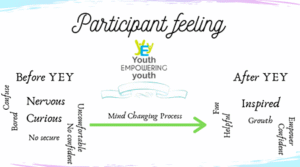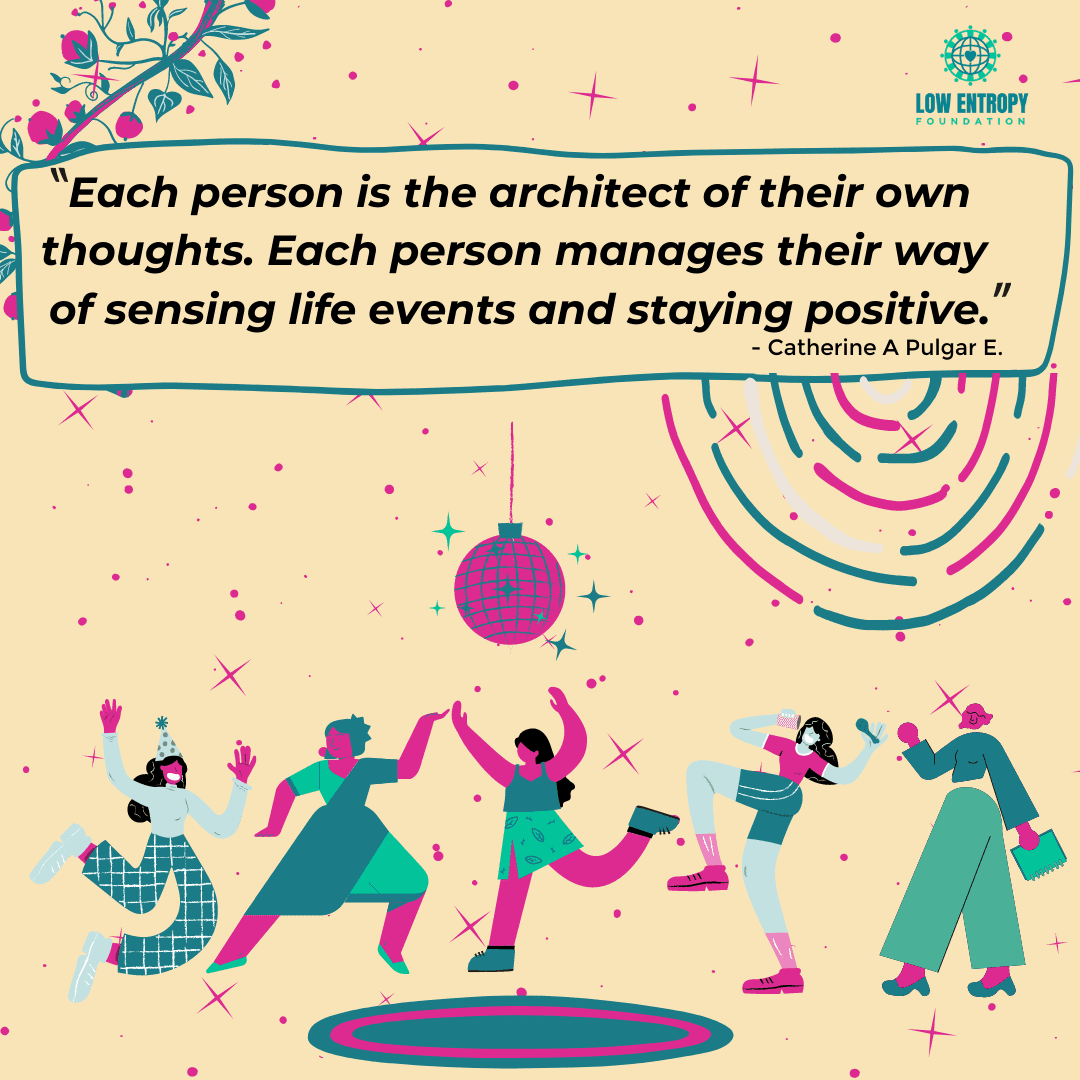A Youth Empowering Youth meeting recap
“Youth Empowering Youth is a program that aims to inspire young people to become leaders in the future. The core of this program is to provide a safe environment for a younger generation in which the participants can feel secure and confident to share their feelings and thoughts. Each session’s final goal is to be a catalyst to encourage youth to explore their talents in a meaningful approach.”
How can we become leaders? How can we be a positive role model for others? Is leadership something that we are born with, or is it an attitude that we can learn? Are leaders the kind of people that change problems to challenges? Can we keep improving in skills that we lacked if we keep moving and working hard? These questions were discussed in the last session of the Youth Empowering Youth (YEY) program.
Participants were together for the last summer YEY meeting on Zoom recently. Each participant had the opportunity to express their ideas and feelings towards the past weeks of learning. The graduation meeting included two fantastic guest speakers who were open to sharing their life and leadership experience, which created a friendly and inclusive atmosphere.
The meeting started with a brief review of the topics of the previous session. For instance, they discussed how to change a problem into a challenge, and perspective. One facilitator gave an example of how, for a mechanic, a broken car is a challenge, but for another person it could be a problem. Also, participants recalled the growth formula, and one of the participants shared her point of view on it. She said that, “When someone starts doing something, that person will become better if they just keep trying and trying.”
Afterwards, one of the facilitators introduced the last session’s topic with just a simple question: “Why do you want to be a leader?” That’s a challenging question to answer, even for adults. However, these young participants were prepared to answer this. Some participants said they wanted to be a good role model and inspire people to be better. Another participant expressed her intention of being a leader because she wanted to share her ideas and ambitions. One other participant said that she didn’t want to be in the shadows anymore, and some participants agreed with this statement. It is interesting to see that even people as young as 12 to 18 years old can clearly express why they want to become the leaders of their lives.
The meeting ran smoothly, the facilitators asked questions, and members answered with eagerness. One question that excelled in the forum was about the qualities of a good leader. An interesting fact that came out was that most of the participants shared the same view on the required qualities to be a good leader.
They believed good leaders were:
- Confident in their ability to lead the journey
- Willing to listen to other people’s opinion and ideas
- Willing to help people
- Willing to step out of their comfort zone
- Confident in their judgment skills
- Easy to approach
- Confident, responsible and accountable
What was surprising was that none of the participants believed they could be leaders, because they associated leaders with high management positions. However, through this conversation, the facilitators explained that being a leader is more than a job or position. It is about enduring life, working hard and helping others, because in a way, we are all leaders. Leadership is a way to live, to express oneself and to take the initiative to do something good.
Participants were surprised by this revelation, and the facilitator asked again if they felt like a leader.
Some of the participants had changed their minds.
Before presenting the first guest speaker, the facilitators asked which one of the previous sessions had been the most helpful for building learning qualities. One participant said that session five, about failure, was mind-blowing because she had always feared failure. She believed that a good leader would never fail, but after that session, she understood that failure is part of growing. It’s impossible to be always on the right path. Sometimes failure is part of the process.
Another participant talked about session two, which was about how your attitude influences your outlook in life. Each person is the architect of their own thoughts. Each person manages their way of sensing life events and staying positive. At the end of this part of the meeting, most participants felt that they identified with this session.
After the leadership discussion, the facilitators announced the first guest speaker Jay DeMerit, a retired professional football player. He was the captain of the Vancouver Whitecaps, and he now dedicates his time to give motivational talks to young people.
Jay came to the meeting with a clear objective to give a meaningful speech about his life journey. He talked about his path to becoming a professional football player. He talked about the struggles he overcame to reach his dreams and the hard work he did to achieve it. One phrase that defined his entire presentation was “dream big, think small.”
Jay explained that we must dream big, and to achieve this, we must work in small steps. Jay’s goal was to empower the participants to do their best. He gave fantastic advice to follow.
- Find a mentor or a person to look up to. If you admire someone, look at how they behave and how hard they work, and try to be better.
- Take step one at the time. Each small accomplishment toward your dream must be celebrated.
- Get out of your comfort zone.
- Micromanage your goals, ask questions, communicate with others and don’t be afraid to fail, because after each failure, you can find an opportunity to grow.
- Believe in yourself.
The second guest speaker was Brittney Grabill, a Canadian film producer and actress living in Los Angeles, working as a casting associate. She shared a little about her work experiences as an actress and how leadership has been part of her life. Brittney talked about being a leader since she was a little girl. She said that she was the kind of person who enjoyed creating plans and playing sports. Her first dream was to be an athlete, but she had to go through a medical procedure that changed the way she looked at life when she was younger.
Some of the stories that she also shared were about her following her dreams of acting because she enjoyed working in her family business. One piece of advice that she gave to the participants was to explore different paths. We might have one or more identity crises in life. Sometimes, we can feel attracted to two or three paths simultaneously. She encouraged the audience to have the courage to explore, since shifting and adaptation are part of life.
Brittney shared how she maintains a positive mind even in the most stressful times. She said that she would write small gratitude notes each day, and she encouraged each participant to practice this. She said that humans don’t tend to be positive thinkers, so it’s important to list down what we’re grateful for from time to time. These lists are reassuring during difficult times.
Jay and Brittney were refreshing speakers full of anecdotes and life experiences who provided new views about applying mindful daily leadership skills.
To wrap up the session, the participants shared how they felt before and after the YEY program:

Congratulations to the participants for being part of this fantastic program, and congratulations to the facilitators for sharing their time and experience with each YEY program member..c
Author: Catherine A Pulgar E.
Edited by: Karissa deGuzman

